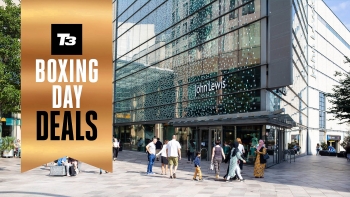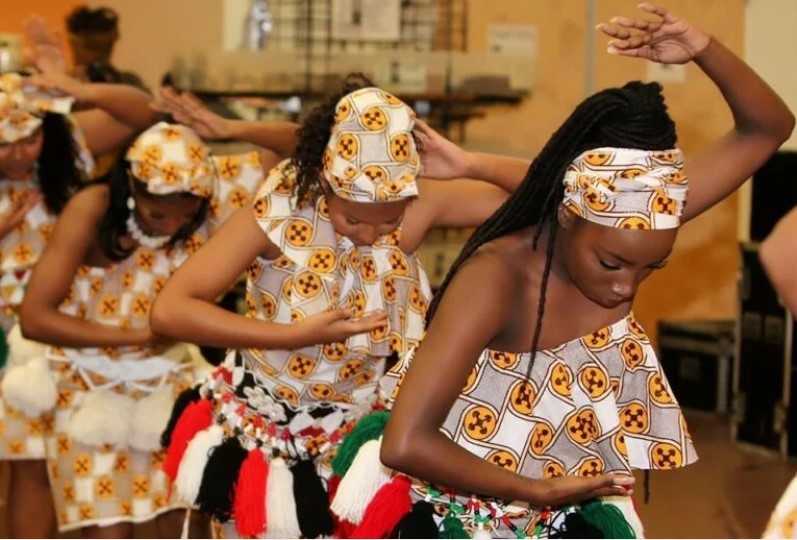What is Kwanzaa – History and Meanings for Black Americans
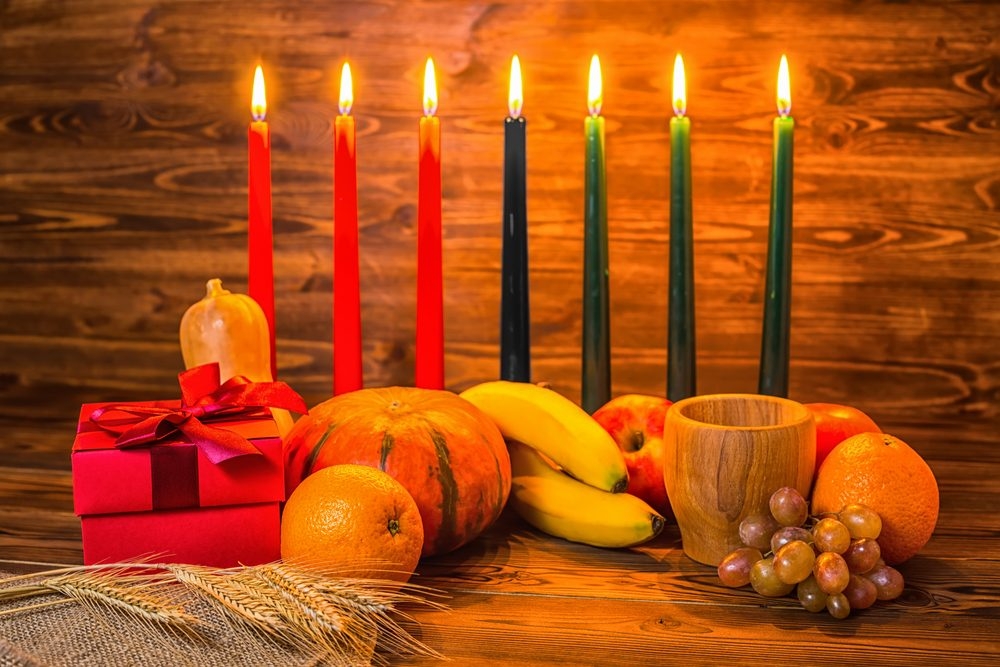 |
| Photo: Reader's Digest |
A weeklong celebration started on December 26th, people may wonder what is Kwanzaa, the history and meanings for Black Americans. Keep reading to find more information.
What it means for Black Americans
Each day of Kwanzaa is devoted to celebrating the seven basic values of African culture or the “Nguzo Saba” which in Swahili means the seven principles.
On Dec. 26, millions throughout the world’s African community will start weeklong celebrations of Kwanzaa. There will be daily ceremonies with food, decorations and other cultural objects, such as the kinara, which holds seven candles. At many Kwanzaa ceremonies, there is also African drumming and dancing.
It is a time of communal self-affirmation – when famous Black heroes and heroines, as well as late family members – are celebrated.
As a scholar who has written about racially motivated violence against Blacks, directed Black cultural centers on college campuses and sponsored numerous Kwanzaa celebrations, I understand the importance of this holiday.
For the African-American community, Kwanzaa is not just any “Black holiday.” It is a recognition that knowledge of Black history is worthwhile.
History of Kwanzaa
Maulana Karenga, a noted Black American scholar and activist created Kwanzaa in 1966. Its name is derived from the phrase “matunda ya kwanza” which means “first fruits” in Swahili, the most widely spoken African language. However, Kwanzaa, the holiday, did not exist in Africa.
Each day of Kwanzaa is devoted to celebrating the seven basic values of African culture or the “Nguzo Saba” which in Swahili means the seven principles. Translated these are: unity, self-determination, collective work and responsibility, cooperative economics (building Black businesses), purpose, creativity and faith. A candle is lit on each day to celebrate each one of these principles. On the last day, a black candle is lit and gifts are shared.
Today, Kwanzaa is quite popular. It is celebrated widely on college campuses, the U.S. Postal Service issues Kwanzaa stamps, there is at least one municipal park named for it, and there are special Kwanzaa greeting cards.
Kwanzaa’s Meaning for Black Community
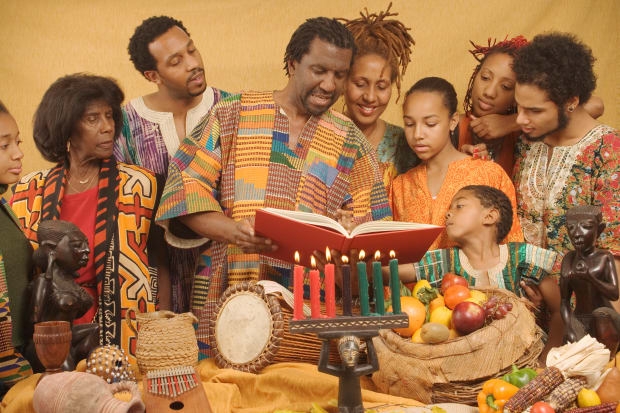 |
| Photo: History.com |
Kwanzaa was created by Karenga out of the turbulent times of the 1960’s in Los Angeles, following the 1965 Watts riots, when a young African-American was pulled over on suspicions of drunk driving, resulting in an outbreak of violence.
Subsequently, Karenga founded an organization called Us – meaning, Black people – which promoted Black culture. The purpose of the organization was to provide a platform, which would help to rebuild the Watts neighborhood through a strong organization rooted in African culture.
Karenga called its creation an act of cultural discovery, which simply meant that he wished to point African-Americans to greater knowledge of their African heritage and past.
Rooted in the struggles and the gains of the civil rights and Black power movements of the 1950s and 1960s, it was a way of defining a uniquely Black American identity. As Keith A. Mayes, a scholar of African-American history, notes in his book, “For Black power activists, Kwanzaa was just as important as the Civil Rights Act of 1964. Kwanzaa was their answer to what they understood as the ubiquity of white cultural practices that oppressed them as thoroughly as had Jim Crow laws.”
Today, the holiday has come to occupy a central role, not only in the U.S. but also in the global African diaspora.
A 2008 documentary, “The Black Candle” that filmed Kwanzaa observances in the United States and Europe, shows children not only in the United States but as far away as France, reciting the principles of the Nguzo Saba.
It brings together the Black community not on the basis of their religious faith, but a shared cultural heritage. Explaining the importance of the holiday for African-Americans today, writer Amiri Baraka, says during an interview in the documentary, “We looked at Kwanzaa as part of the struggle to overturn white definitions for our lives.”
Indeed, since the early years of the holiday, until today, Kwanzaa has provided many Black families with tools for instructing their children about their African heritage.
Top 7 Interesting Facts About Kwanzaa
1. Kwanza celebrated its 50th Birthday in 2016
The holiday was created by Dr. Maulana Karenga in 1966 to celebrate family, culture and heritage, and is modeled after the first harvest celebrations in Africa.
2. The Number Seven
There are 7 Principles and 7 Primary Symbols that emphasize a unique set of values and ideals during the 7 days of Kwanzaa… also spelled with 7letters.
3. Umoja is Unity
With over 2000 languages spoken on the African continent, Kwanzaa adopted one of the many unifying languages, Swahili, which is spoken by millions on the African continent. The name Kwanzaa comes from a Swahili phrase meaning "first fruits."
4. Red, Black and Green
The colors of Kwanzaa are a reflection of the Pan-African movementrepresenting “unity” for peoples of African descent worldwide: Black for the people, red for the noble blood that unites all people of African ancestry, and green for the rich land of Africa.
5. Stamp That!
The first US postage stamp to commemorate Kwanzaa was issued in 1997. There have been 5 designs released since then, the most recent being in 2016.
6. A Universal Message
Kwanzaa is rooted in African culture, however, people from all racial and ethnic backgrounds are welcomed to join in the celebration.
7. Star Power
Celebrities who have been known to celebrate Kwanzaa every year include Oprah, Maya Angelou, Chuck D, Angelina Jolie, and Synthia Saint James (who designed the first Kwanzaa postage stamp.), according to pbs.
Kwanzaa Celebration
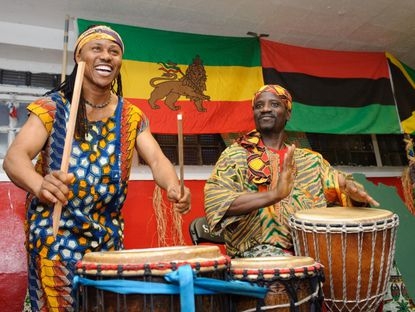 |
| Photo: New York Daily News |
If you’ve never celebrated the holiday before (or you have but want to learn even more), you’ve come to the right place. And before you ask, yes, things are probably going to look a little different this year because, oh, a very not-little thing called a pandemic. But that doesn’t mean you can’t have a super-fun and meaningful celebration. So let’s get to it.
1. GET CRAFTY
One core tenet of Kwanzaa is giving gifts to loved ones, but why not try going all DIY with it? “You give handmade gifts, really personal gifts, something that you can make,” Hunter says. “That’s really more in line with tradition.” Maybe try out a homemade candle or some cute jewelry! I know your gift-giving skills have grown beyond a mixtape and a card.
2. DECORATE
TBH, there’s no better way to get into the holiday spirit than decking out your home for the festivities? The classic Kwanzaa setup is a mkeka placemat with an ear of corn, fruits, and, of course, the kinara.
The ear of corn represents fertility and hope for the future through children, while the fruits are meant to symbolize both joy and the fruitful results of collective hard work. To top it off, add a unity cup to signify community. On the sixth day, the cup is filled with water, wine, or juice, and every family member takes a sip in remembrance of their ancestors and to symbolize togetherness.
3. CHEF IT UP
Don’t even front. We all know that the best part of basically any holiday is the food, and you’re lying if you say otherwise. Kwanzaa is the perfect time to honor the many different cultures of the African diaspora through their customary dishes. Man, does a lot of this food hit the spot. You could whip up some jerk chicken, jollof rice, black-eyed peas, or any of the countless traditional recipes from around the world and just die of happiness and a full belly.
4. CHECK OUT LOCAL CELEBRATIONS
Typically, local organizations across the country will host Kwanzaa events stacked with special speakers, live music, and Black art on display. But again, this year’s celebrations are going to be a little bit more virtual. Thank god we’ve all grown very accustomed to at-home gatherings and watch parties by now. Festivals like Kwanzaa Fest BK are heading to Instagram Live to present their lineups, so keep an eye out for virtual showcases—all from the comfort of your own home.
5. BUY BLACK
An extremely relevant element of Kwanzaa is the focus on cooperative economics, and that means supporting Black businesses. Oh, look! There are plenty of resources out there for you to buy Black and to keep buying from Black-owned businesses, cites cosmopolitan.
6. TAKE A STEP BACK
As with any holiday, it’s always good to take a step back and remember what Kwanzaa is all about. “There has to be some kind of moment of introspection, thinking about our ancestors and the descendants of enslaved African people globally,” Hunter says. “I think the most important thing about Kwanzaa is contemplation.”
Remember, as a cultural holiday, Kwanzaa isn’t tied to any particular faith. Every family celebrates Kwanzaa differently, so celebrate the holiday with your family and honor your African heritage however you choose to this year. Because honestly, there’s no totally correct way to celebrate anything in 2020.


